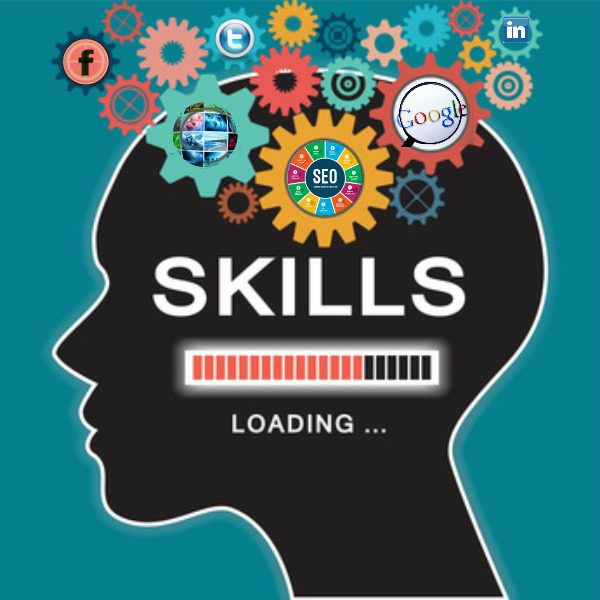Bridging the digital skills gap
- 5 Min Read
Digital transformation is not new. Ever since the birth of the internet two decades ago, businesses have seen the enormous opportunity offered by a new range of channels and tools. However, the flipside of that is the difficulty of finding the right people to drive that transformation – a challenge that is growing every day. […]
- Author: Rachel Montgomery-Young
- Date published: Jan 11, 2018
- Categories

Digital transformation is not new. Ever since the birth of the internet two decades ago, businesses have seen the enormous opportunity offered by a new range of channels and tools.
However, the flipside of that is the difficulty of finding the right people to drive that transformation – a challenge that is growing every day. Despite increasing numbers of computer science graduates coming out of universities, the flow still doesn’t quench the thirst of businesses in need of the right skills, right now.
The growing need for data-related skills, in fact, is being felt at all levels, and encompasses everything from basic excel-driven skills to working day-to-day on gathering, assessing and analysing data, all the way to PhD data scientists.
Businesses increasingly need skilled people who can design, deliver and iterate customer-facing web and app solutions; they need people with a creative ability that is outside of the ‘norm’.
Learning to learn
Above all else the key differentiator – and the one thing that will ultimately meet the productivity challenge and keep UK companies competitive – is the ability to learn. This is because things are changing so quickly and are so complex that a specific skillset is unlikely to stay current or to be valuable in isolation.
The shifting sands of these new skills and challenges are highlighted in the results of a survey carried out by HRD Connect, which reveals the gaps that are emerging in that tectonic shift – and what businesses are doing to catch up.
The survey was commissioned in order to gauge how HR directors view the digital skills gap, and how prepared they feel they are to bridge it. However, more than 60% of respondents admitted that they don’t have any specific plans in place to bridge this skills gap.
And it seems the traditional routes are now ineffective; for many, hiring more computer science graduates is now a less attractive option than it once was, for example.
Recent research from Arch Apprentices showed that business leaders believe graduates are not ready for work: 49% said universities do not equip graduates for the workplace, with 52% believing that young people do not know what to expect after they have finished university. In order to help bridge the gap, 30% of professionals believe that more work placement schemes should be offered by universities.
“The research confirms what clients tell us every week – digital skills are hard to get,” says Ben Rowland, co-founder of Arch Apprentices.
“And the research also shows that apprenticeships are a great way to help fill that gap, whether that’s programmes in Data Analytics, Digital Marketing or Software Development. Perhaps the main reason why digital apprenticeships are so good is the structured way they support people to put new skills into practice and then get better and better at them – it’s not just about getting new knowledge, but about getting brilliant at the job.”
Spotting the gaps
Encouragingly, there are now a growing number of businesses that are developing a greater understanding of the skills needed to cope with digital transformation. Over 70% of those surveyed said this was now a top priority for their business. By developing a better understanding of where the gaps lie, business leaders are far better placed to devise effective strategies to cope in the coming years.
However, while many are in the planning and understanding process, for the 35% that are addressing the issue head on, their approaches and solutions vary. For most, the focus falls on developing internal talent. That takes a variety of forms: sending staff on training courses, using mentorship programmes, and buying in expertise to consult on new areas of digital innovation.
A third way
Perhaps the most encouraging aspect of the research is the fact that over half of businesses that say they have an emerging digital skills gap are now using apprentices to fill it. That suggests that for a growing number of companies bringing in digital natives and training them to the required standard is now the most sustainable and effective strategy.
That further underlines the need for a coordinated and well thought-out strategy to plug the digital skills gap. However, the research also shows low levels of engagement with education and training providers – and that is something that must change in order for businesses to truly equip themselves for the digital age.
It shouldn’t be too hard to tackle this. The key is to make sure you work with a provider that has quality at the heart of what they do. Ofsted inspect every provider, college, and school, so using their reports and ratings as a measure isn’t a bad place to start.
The help is out there – from government, training providers, colleges and experts. All it takes is a determination to tackle the next challenge and the digital skills gap can be closed.









